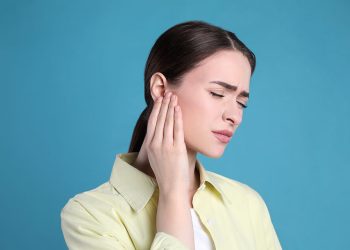A knocked-out tooth is most commonly caused by sudden physical trauma, but there are a variety of other contributing factors that can increase the risk of tooth avulsion.
While a knocked-out tooth may happen in an instant, there are many ways it can occur. Some causes are sudden, like a fall or impact. Others develop over time, such as poor dental health. Knowing the causes of knocked-out tooth injuries helps prevent them and prepares people to respond quickly.
1. Sporting Injuries
Sports injuries are the top cause of knocked-out teeth in kids and adults. Contact sports like rugby, hockey, and boxing carry high risk. Even non-contact sports such as skateboarding or cycling can lead to falls or crashes. These impacts often strike the face, pushing teeth out of the socket.
Athletes who skip mouthguards are much more likely to lose a tooth. A strong blow during play, especially to the front teeth, can knock them out completely.
2. Accidental Falls
Falls are another major cause, especially in children and older adults. Young kids fall when they run, jump, or climb. Their balance is still developing, which makes them more likely to get hurt. Older adults may have weak bones or poor balance, making them prone to falls.
When someone falls onto a hard surface—especially with their mouth open—the impact can knock out a tooth easily.
3. Motor Vehicle Accidents
Car crashes often cause serious injuries, and dental trauma is common. A person’s head can hit the steering wheel, dashboard, or airbag during a crash. Even with safety gear, the force can be strong enough to knock out teeth.
High-speed crashes and rollovers make this even more likely. Dental injuries often happen alongside cuts, bruises, and broken bones.
4. Physical Violence or Assault
Sadly, violence is another cause of knocked-out teeth. Fights, assaults, or abuse that involve punches or kicks to the face can knock out a tooth. These injuries often come with cuts, bruises, or broken facial bones.
Victims of domestic violence or mugging are especially at risk. In such cases, both medical and dental care are needed quickly.
5. Risks at Work
Jobs in construction, factories, or workshops often carry a higher risk of dental injury. Falling tools, flying objects, or equipment failure can all lead to trauma. Workers who slip or get hit in the face may suffer tooth avulsion.
Wearing safety gear like helmets or face shields can lower the risk on the job.
Common Everyday Causes of Knocked-Out Tooth
Some causes of tooth loss come from daily activities. As new transport methods and play styles become popular, risks increase.
6. Bike or Scooter Crashes
With more people riding bikes and e-scooters, crashes are becoming more common. When riders fall or hit something, their face often hits the ground. If they aren’t wearing helmets, the chance of tooth injury goes up.
Falling on the pavement or being hit by a handlebar can knock out a tooth on impact.
7. Dental Problems and Weak Teeth
Poor dental health makes teeth easier to knock out. Gum disease, bone loss, and deep cavities weaken the tooth’s support. In these cases, even a minor bump might cause the tooth to fall out.
Infections and decay also loosen teeth over time. Without care, they may come out on their own or from mild trauma.
8. Braces and Orthodontic Treatment
Braces slowly shift teeth, which can make them feel loose. This is normal during treatment, but it also makes teeth easier to knock out.
People with braces should wear a mouthguard during sports or rough play. That helps protect both the tooth and the hardware.
9. Teeth Grinding (Bruxism)
Grinding teeth at night wears down the tooth and its support system. Over time, this makes it easier for a tooth to be knocked out. Bruxism alone may not cause avulsion, but it increases the risk when another injury occurs.
Mouthguards or stress reduction can help manage this condition and protect the teeth.
Less Common But Important Causes of Knocked-Out Tooth
Other health issues and habits may also raise the risk, even if they are less obvious.
10. Genetic or Bone Conditions
Some people have dental traits that raise their risk. Thin roots or fragile bones, whether from birth or health problems like Ehlers-Danlos or osteogenesis imperfecta, make teeth more vulnerable.
In these cases, even a small hit may cause a tooth to fall out. These people need extra dental care and protection during activity.
11. Poor Oral Hygiene and Diet
Not brushing and flossing well allows plaque to build up. Over time, this leads to gum disease and weakens the teeth. A lack of vitamins like calcium and vitamin D also harms the bones.
These conditions don’t knock out teeth right away but make the teeth easier to dislodge later.
12. Playground Injuries and Rough Play
Children playing on slides, swings, or trampolines can fall or bump into others. These playful settings often lead to face injuries. Even a simple collision during a game can be enough to cause a tooth avulsion in kids.
Parents should watch children during rough play and consider mouthguards for contact-heavy activities.
Understanding the causes of a knocked-out tooth is vital for both prevention and early response. While it may not always be possible to avoid sudden accidents, adopting practical safety measures—such as wearing mouthguards, ensuring proper dental care, and using protective equipment—can drastically reduce the likelihood of experiencing this painful and often costly dental emergency. Being aware of the risk factors and high-risk situations empowers individuals and families to act proactively and protect their oral health in everyday life.


